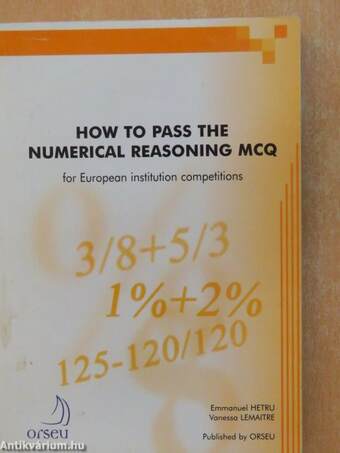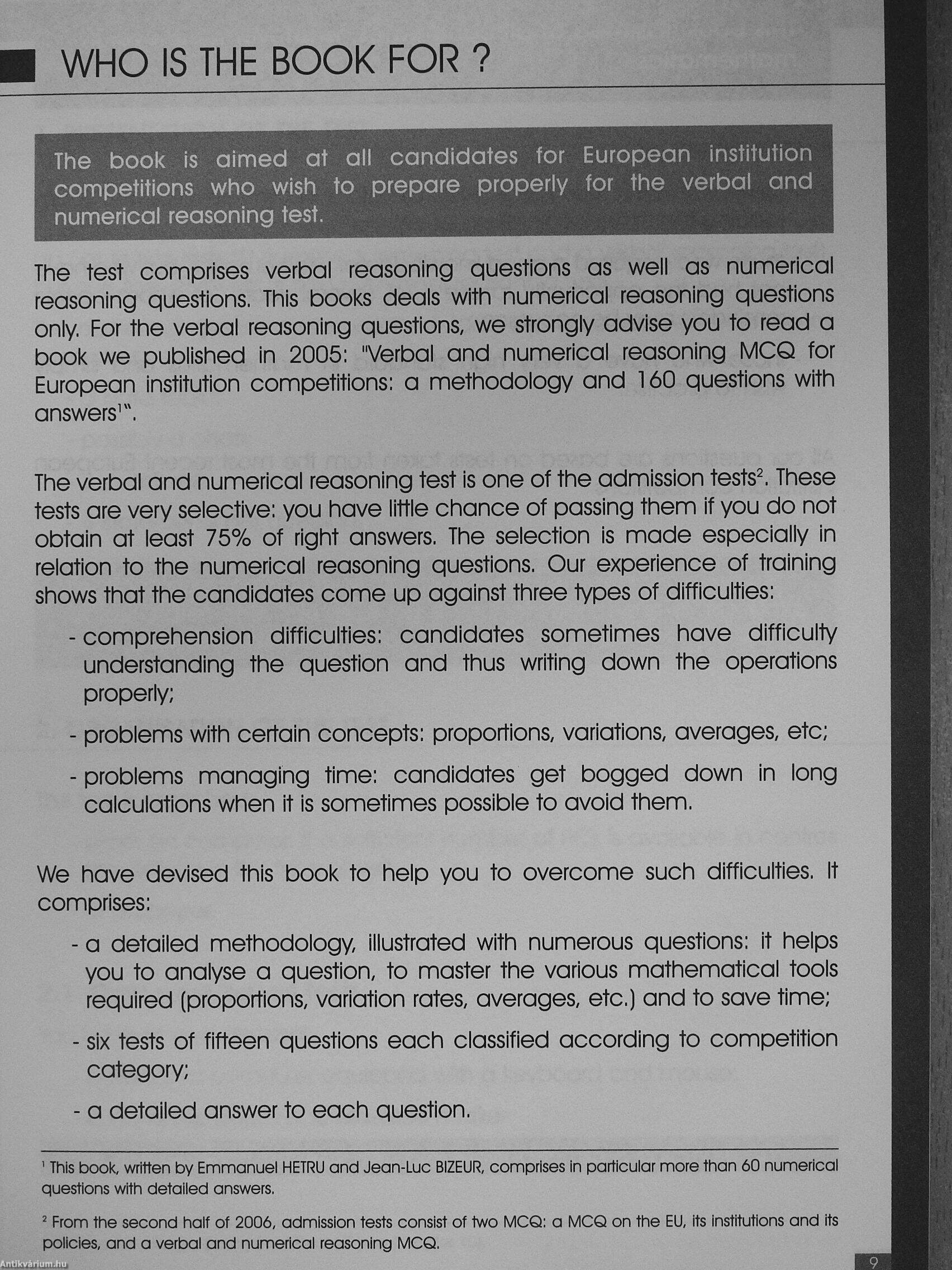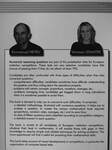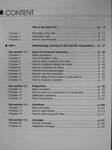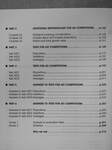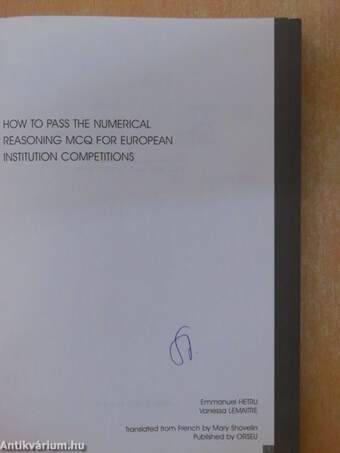1.062.212
kiadvánnyal nyújtjuk Magyarország legnagyobb antikvár könyv-kínálatát

VISSZA
A TETEJÉRE
JAVASLATOKÉszre-
vételek
How To Pass The Numerical Reasoning MCQ For European Institution Competitions
| Kiadó: | ORSEU |
|---|---|
| Kiadás helye: | Brüsszel |
| Kiadás éve: | |
| Kötés típusa: | Ragasztott papírkötés |
| Oldalszám: | 316 oldal |
| Sorozatcím: | |
| Kötetszám: | |
| Nyelv: | Angol |
| Méret: | 21 cm x 15 cm |
| ISBN: | 2-9521629-7-2 |
| Megjegyzés: | Fekete-fehér ábrákkal. |
naponta értesítjük a beérkező friss
kiadványokról
naponta értesítjük a beérkező friss
kiadványokról
Előszó
TovábbFülszöveg
Numerical reasoning questions are part of the preselection tests for European institution competitions. These tests are very selective: candidates have little chance of passing them if they do not obtain at least 75%.
Candidates are often confronted with three types of difficulties when they take numerical questions:
- comprehension difficulties: candidates sometimes have difficulty understanding the question and thus writing down the operations properly;
- problems with certain concepts: proportions, variations, averages, etc.;
- problems managing time: candidates get bogged down in long calculations when it is sometimes possible to avoid them.
This book is devised to help you to overcome such difficulties. It comprises:
- a detailed methodology, illustrated with numerous questions: it helps you to analyse a question, to master the various mathematical tools required (proportions, variation rates, averages, etc.) and to save time;
- six tests of fifteen questions each... Tovább
Fülszöveg
Numerical reasoning questions are part of the preselection tests for European institution competitions. These tests are very selective: candidates have little chance of passing them if they do not obtain at least 75%.
Candidates are often confronted with three types of difficulties when they take numerical questions:
- comprehension difficulties: candidates sometimes have difficulty understanding the question and thus writing down the operations properly;
- problems with certain concepts: proportions, variations, averages, etc.;
- problems managing time: candidates get bogged down in long calculations when it is sometimes possible to avoid them.
This book is devised to help you to overcome such difficulties. It comprises:
- a detailed methodology, illustrated with numerous questions: it helps you to analyse a question, to master the various mathematical tools required (proportions, variation rates, averages, etc.) and to save time;
- six tests of fifteen questions each classified according to competition category;
- a detailed answer to each question.
The book is aimed at all candidates of European institution competitions, whatever their level in mathematics. It will enable those with gaps in their knowledge to acquire simple and reliable techniques for solving problems. The more experienced will find it useful for practising their mathematical skills.
This book takes account of recent developments in competitions, in particular the organisation of computer-based tests. Vissza
Témakörök
Megvásárolható példányok
Nincs megvásárolható példány
A könyv összes megrendelhető példánya elfogyott. Ha kívánja, előjegyezheti a könyvet, és amint a könyv egy újabb példánya elérhető lesz, értesítjük.



